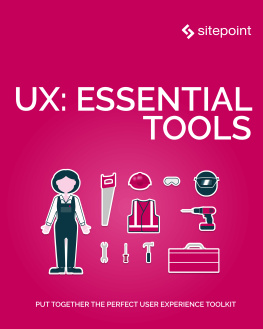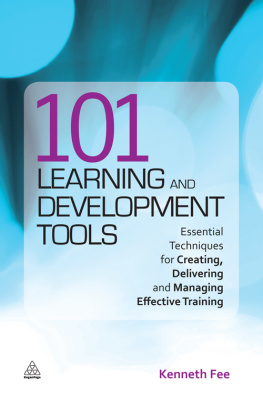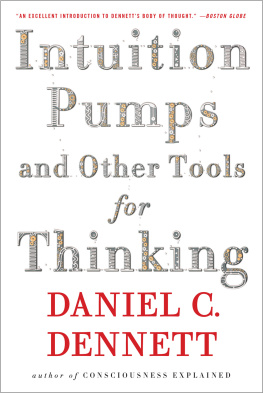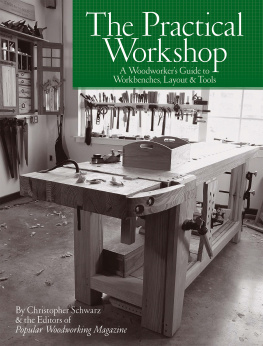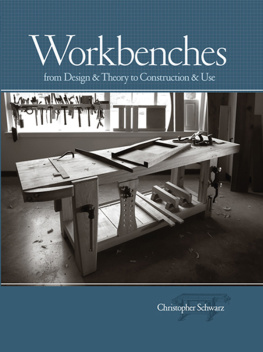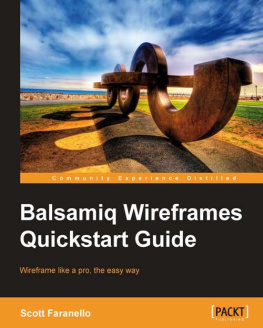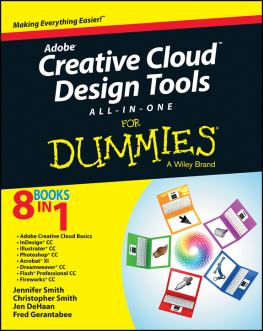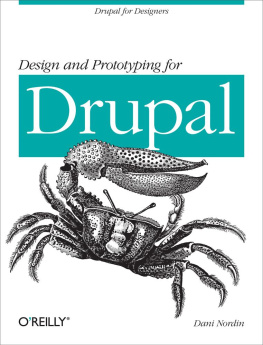Daniel Schwarz - UX: Essential Tools
Here you can read online Daniel Schwarz - UX: Essential Tools full text of the book (entire story) in english for free. Download pdf and epub, get meaning, cover and reviews about this ebook. year: 2019, publisher: SitePoint, genre: Computer. Description of the work, (preface) as well as reviews are available. Best literature library LitArk.com created for fans of good reading and offers a wide selection of genres:
Romance novel
Science fiction
Adventure
Detective
Science
History
Home and family
Prose
Art
Politics
Computer
Non-fiction
Religion
Business
Children
Humor
Choose a favorite category and find really read worthwhile books. Enjoy immersion in the world of imagination, feel the emotions of the characters or learn something new for yourself, make an fascinating discovery.
- Book:UX: Essential Tools
- Author:
- Publisher:SitePoint
- Genre:
- Year:2019
- Rating:5 / 5
- Favourites:Add to favourites
- Your mark:
- 100
- 1
- 2
- 3
- 4
- 5
UX: Essential Tools: summary, description and annotation
We offer to read an annotation, description, summary or preface (depends on what the author of the book "UX: Essential Tools" wrote himself). If you haven't found the necessary information about the book — write in the comments, we will try to find it.
This book outlines the best tools available for UX professionals today. Covering prototyping, wireframing, mind mapping and design handoff tools, youll discover everything a modern UX professionals needs.
UX: Essential Tools — read online for free the complete book (whole text) full work
Below is the text of the book, divided by pages. System saving the place of the last page read, allows you to conveniently read the book "UX: Essential Tools" online for free, without having to search again every time where you left off. Put a bookmark, and you can go to the page where you finished reading at any time.
Font size:
Interval:
Bookmark:
Copyright 2019 SitePoint Pty. Ltd.
Ebook ISBN: 978-1-925836-31-8
- Cover Design: Alex Walker
- Project Editor: Luke Chambers
All rights reserved. No part of this book may be reproduced, stored in a retrieval system or transmitted in any form or by any means, without the prior written permission of the publisher, except in the case of brief quotations embodied in critical articles or reviews.
The author and publisher have made every effort to ensure the accuracy of the information herein. However, the information contained in this book is sold without warranty, either express or implied. Neither the authors and SitePoint Pty. Ltd., nor its dealers or distributors will be held liable for any damages to be caused either directly or indirectly by the instructions contained in this book, or by the software or hardware products described herein.
Rather than indicating every occurrence of a trademarked name as such, this book uses the names only in an editorial fashion and to the benefit of the trademark owner with no intention of infringement of the trademark.

Published by SitePoint Pty. Ltd.
48 Cambridge Street Collingwood
VIC Australia 3066
Web: www.sitepoint.com
Email: books@sitepoint.com
SitePoint specializes in publishing fun, practical, and easy-to-understand content for web professionals. Visit http://www.sitepoint.com/ to access our blogs, books, newsletters, articles, and community forums. Youll find a stack of information on JavaScript, PHP, design, and more.
This book outlines the best tools available for UX professionals today. It contains:
- A Roundup of the Best Prototyping Tools by Dave Kearney & Daniel Schwarz
- A Roundup of the Best Mind Mapping Tools by Daniel Schwarz
- A Roundup of the Best Design Handoff Tools by Daniel Schwarz
- A Roundup of the Best Wireframing Tools by Daniel Schwarz
This book is for anyone interested in UX. You won't need any technical experience in order to read it.
Code in this book is displayed using a fixed-width font, like so:
A Perfect Summer's DayIt was a lovely day for a walk in the park.The birds were singing and the kids were all back at school.
Where existing code is required for context, rather than repeat all of it, will be displayed:
function animate() { new_variable = "Hello";}Some lines of code should be entered on one line, but weve had to wrap them because of page constraints. An indicates a line break that exists for formatting purposes only, and should be ignored:
URL.open("http://www.sitepoint.com/responsive-web-design-real-user-testing/?responsive1");Youll notice that weve used certain layout styles throughout this book to signify different types of information. Look out for the following items.
Tips provide helpful little pointers.
Notes are useful asides that are relatedbut not criticalto the topic at hand. Think of them as extra tidbits of information.
... pay attention to these important points.
Warnings highlight any gotchas that are likely to trip you up along the way.
As the number and variety of prototyping tools continues to grow, its becoming harder and harder to figure out which tools meet what needs, and who theyre suitable for. Since we first wrote this article back in 2015, countless design apps have dominated (and changed) the prototyping space.
Stakeholder feedback and user testing is now taking a far greater role in UI design and this new generation of tools aims to connect these two previously separate stages of the design process. Clients want to be involved, and email isnt cutting it anymore. Some apps like UXPin are also taking care of the wireframing stages, whereas others like InVision App are bridging the gap between designer and developer by offering design handoff tools.
Plus, theres now a clear divide between desktop tools with cloud sharing (Adobe XD, Axure, Balsamiq, Sketch+InVision) and collaborative online tools (Figma, UXPin, Fluid UI, Proto.io).
Many of these tools appear to be converging on a feature set that defines the role of the modern user experience designer. TL;DRheres a swift comparison of prototyping tools.
Adobe may have been caught napping during the rise of Sketch, but theyre rapidly making up for it with Adobe XD. Launched in March 2016, its the latest addition to Adobes Creative Cloud Suite. While you can prototype interactions in Sketch with the help of the Craft Plugin, Adobe XD impressively offers these tools right out of the box, so designers are already comparing Adobe XD to Sketch like longtime rivals.
Its definitely worth a look if youre interested in a tool that covers all your bases (low-fidelity prototyping, high-fidelity prototyping, user flows, sharing and feedback) in a single app.
Strengths
- Available for macOS and Windows
- Everything you need in a single app
Weaknesses
- Still in beta (although pleasantly mature as a design app)
- Plugin workflow non-existent, youre locked into the Adobe ecosystem
InVision is the primary go-to tool for serious designers and enterprise teams alike. With tools like whiteboard collaboration, dynamic prototyping, comments, device preview, video calling, user testing, version control and design handoff, InVision is already a colossal force in the prototyping space, but when you factor in its Sketch and Photoshop integrations, it becomes an all-in-one design suite, especially when you throw in Craft, the Sketch/Photoshop Plugin that brings a lot of that functionality directly into your design app of choice.
Strengths
- Powerful, mature platform
- Fully-integrated with Sketch for high-fidelity design
- Constantly being updated with new features
Weaknesses
- Feature-set can be a little overwhelming at first
- Sketch is only available for macOS users only (but you can pair InVision with Photoshop on Windows, although Photoshop isnt strictly a UI design tool)
A very strong favourite for those looking for simpler, friendlier alternatives to InVision App. Marvel App has excelled at creating a prototyping tool that works for both advanced UX designers and those simply looking to communicate high and low fidelity concepts. Plus, while they champion working with Sketch, they also offer component libraries to allow for a complete online workflow in Marvel. Marvel App also recently integrated fan-favourite POP, which allows designers to transform their pen/paper ideas into iPhone and Android apps.
Font size:
Interval:
Bookmark:
Similar books «UX: Essential Tools»
Look at similar books to UX: Essential Tools. We have selected literature similar in name and meaning in the hope of providing readers with more options to find new, interesting, not yet read works.
Discussion, reviews of the book UX: Essential Tools and just readers' own opinions. Leave your comments, write what you think about the work, its meaning or the main characters. Specify what exactly you liked and what you didn't like, and why you think so.

